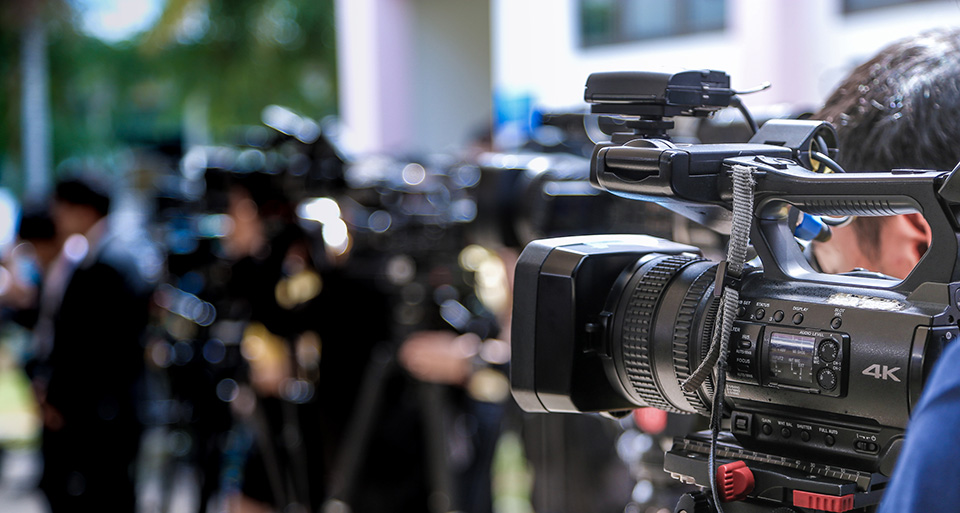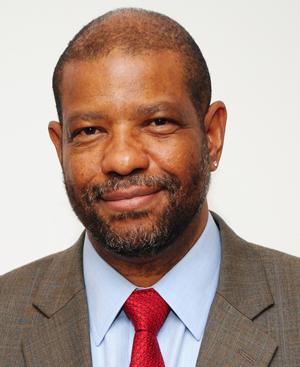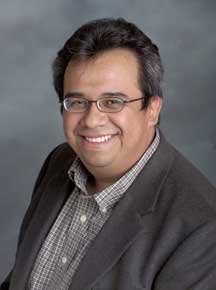CSUN Professors Consider the State of Journalism in the U.S. Today

CSUN journalism faculty worry that Americans have forgotten that the rights of a free press are enshrined in the U.S. Constitution and are essential to the foundation of a democracy. Photo credit, B4LLS, iStock.
A journalist’s job is to gather the facts and share them with the public. The rights of a free press are enshrined in the U.S. Constitution and are essential to the foundation of a democracy.
California State University, Northridge journalism professors Benjamin Davis and José Luis Benavides are worried that many Americans have forgotten that, amidst cries of “fake news” and law enforcement attacks on reporters.
“A free press is important to the stability of any society,” said Davis, a veteran broadcast journalist before turning to teaching. “Journalism is the one occupation — not being a doctor, farmer or businessman, but being a member of the press — that has Constitutional protection. I can’t understand why people don’t realize that the job of the press is so important to the stability of our democracy. By reporting the facts, whether you like them or not, the press is ensuring that the people have the information they need to make informed decisions about this country and its future.”
Benavides, who developed the nation’s first interdisciplinary minor in Spanish-language journalism at CSUN, agreed.

Benjamin Davis
“I think what makes these times problematic and worrisome is because journalism is a key component to keeping the public informed and civic engagement,” Benavides said. “If you don’t know certain things, then you can’t effectively take part in the checks and balances that are so important in this country.”
Benavides and Davis argued that for news organizations to do the best job they can to inform and educate the public, their newsrooms need to reflect the diversity of the communities they serve.
“Good coverage, even goodwill, can be undermined by newsrooms that make certain assumptions about a community based on ignorance of what is actually going on in those communities and the experiences of their residents,” Benavides said. “I am not just talking about ethnic diversity. Intellectual diversity and a diversity of life experiences in a newsroom are important if the media are to effectively and honestly cover a community.”
It’s those experiences, Benavides and Davis said, that give media the foundation to quickly respond and provide nuance to their coverage when crises happen, whether it’s an understanding of COVID-19’s impact on communities of color or an appreciation for the diversity of issues fueling the current protests against police brutality.
“Without having that breadth of diversity in the newsroom, many in the media had to scramble to properly cover these issues,” Benavides said, “just like they had to more than 50 years ago when civil unrest erupted across the country in the 1960s.”
News organizations need to do more than just say they want diverse newsrooms, “they have to do something about it,” he said.
Davis noted that the future of journalism is “hyper-local.”

José Luis Benavides
“News organizations have to be able to plug into various communities, and not only bring out local news, cultural information, educational issues and high school sports,” he said. “You have to let those communities know that you are paying attention and are reporting on them if you want to maintain your status as a major news organization. You have to be able to drill down to the hyper-local level, and that means going into communities of color. To do that, you have to have those people on your staff.
“It’s not a matter of hiring quotas or tokenism,” he added. “It’s about hiring good reporters who can report on the community.”
Both journalists said they have been troubled by the level of violence directed at news organizations and reporters by law enforcement during coverage of the protests against police brutality. Neither can remember a time, when law enforcement intentionally targeted so many reporters covering one issue in the United States.
“In the past, you may have seen a freelance journalist or a minority reporter singled out for harassment,” Benavides said. “This is the first time we have seen clearly credentialed, mainstream reporters targeted for harassment, arrested and even shot at with tear gas and rubber bullets. It isn’t just reporters of color, it’s white reporters as well.”
Davis said President Trump, with his claims “fake news” and charges that members of the media are “enemies of the people,” has created a climate in which media representatives are targeted.
“He’s very good at branding people,” he said. “People have forgotten that journalists are member of the fourth estate, which, according to our forefathers, is as important to our democracy as the executive, legislative and judicial branches of our government. As members of the fourth estate, journalist are the ones keeping an eye on the other branches to ensure they are doing their jobs.”

 experience
experience